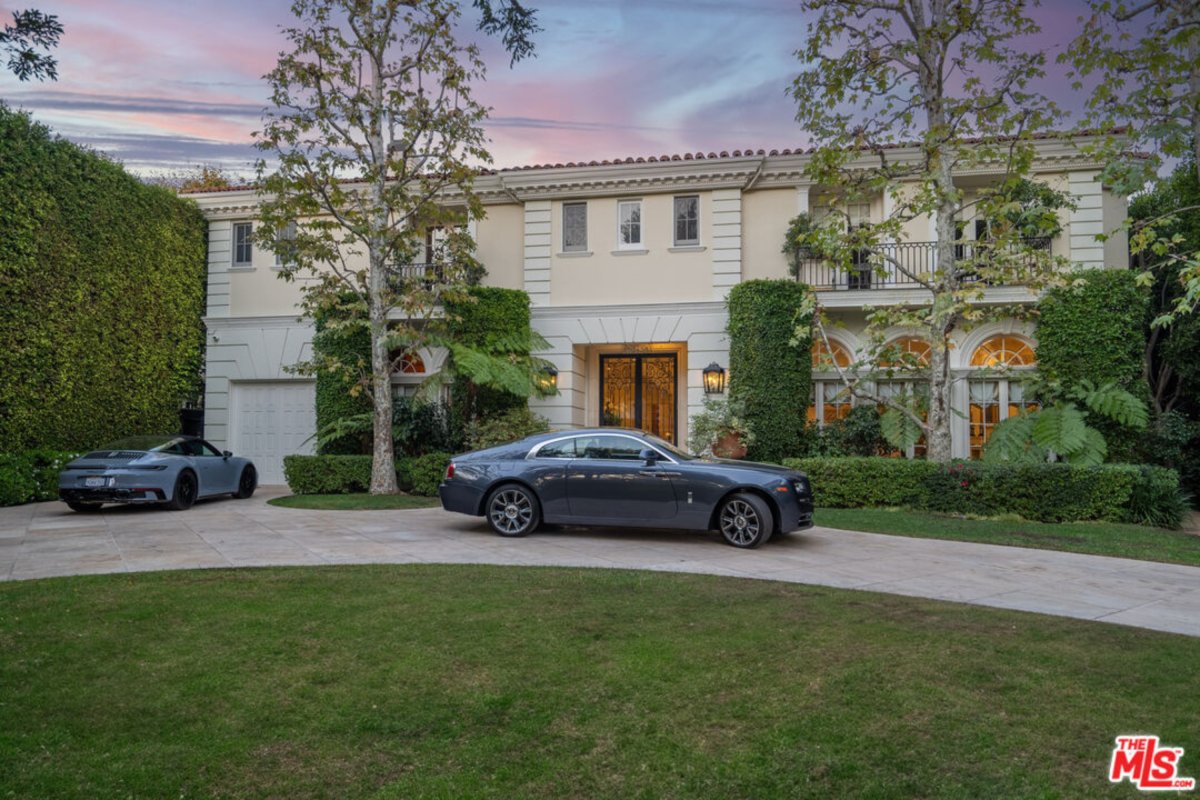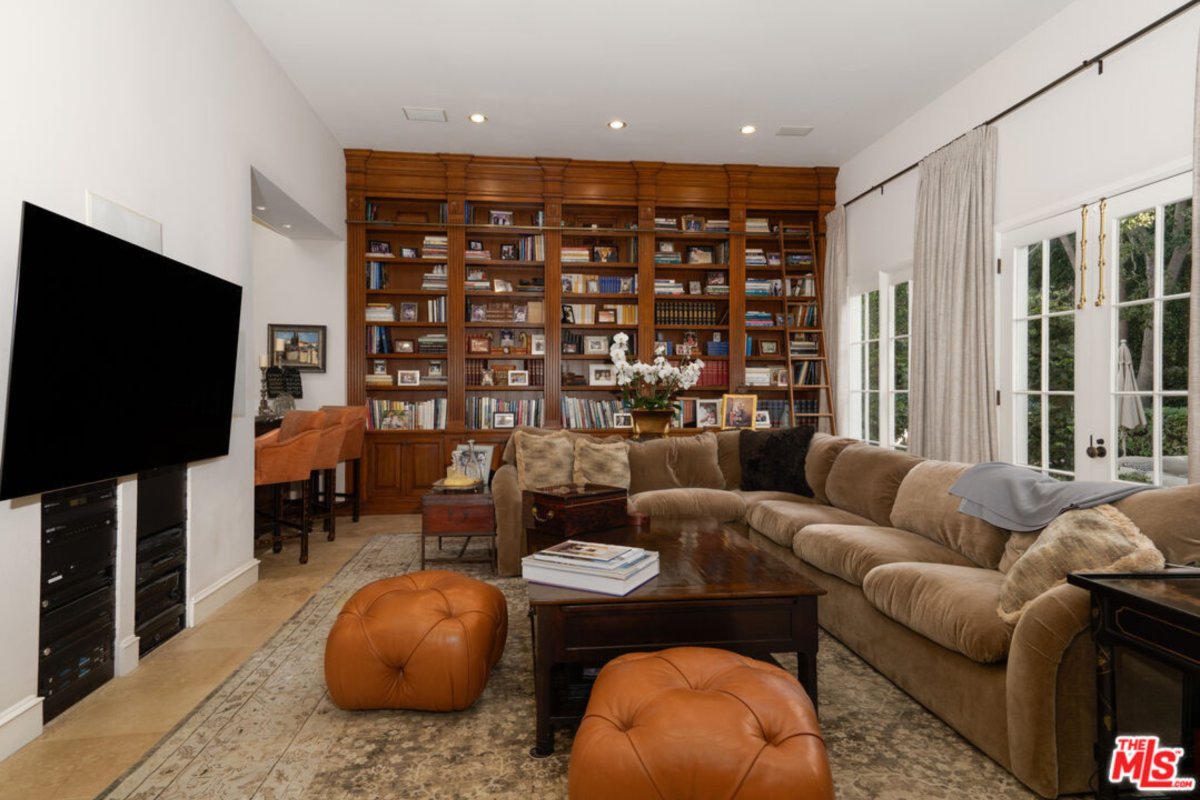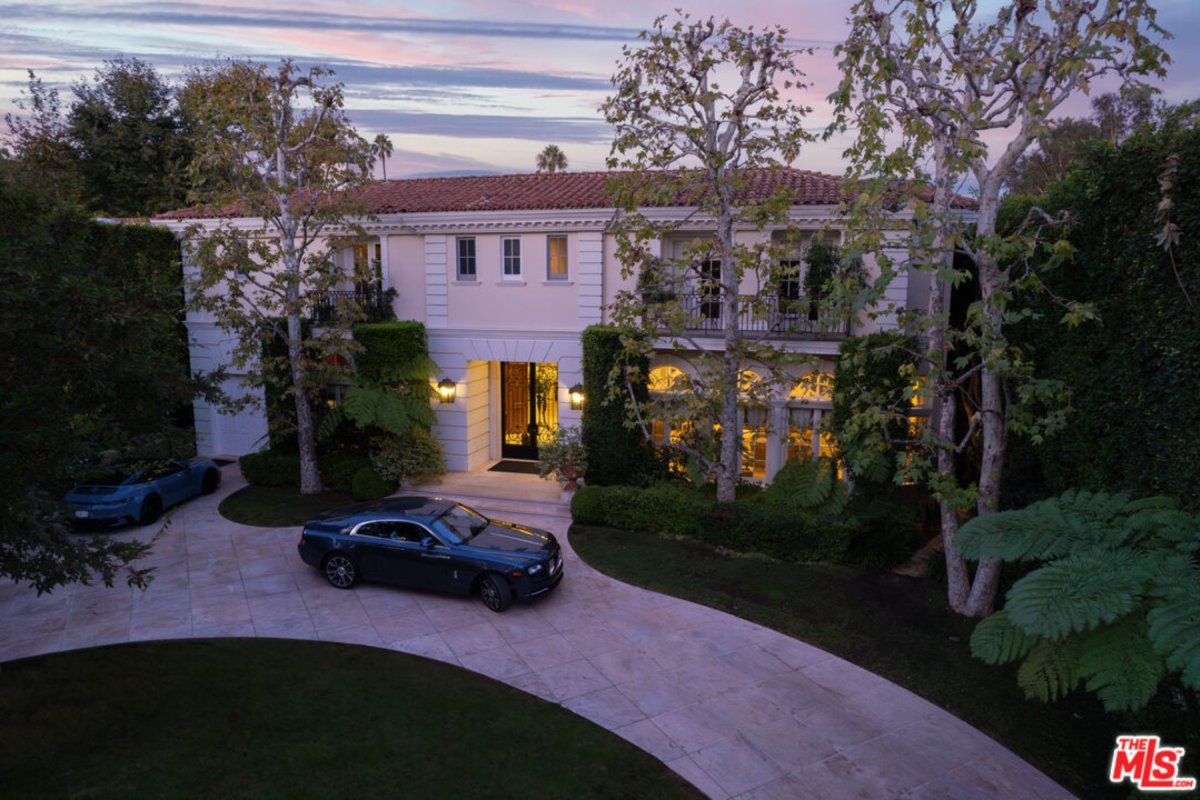The Menendez family’s Beverly Hills mansion, where a brutal double murder shocked the nation in 1989, remains eerily untouched — its walls concealing the dark history once gripping the nation’s attention.
Lyle and Erik Menendez gunned down their parents, José and Kitty Menendez with 14 shots as the couple sat watching TV in the den of their Beverly Hills home.
The brothers shot their father five times, including once at point-blank range with a shotgun aimed at the back of his head. As their mother attempted to crawl away, Lyle shot her in the face with a shotgun. In total, she was shot nine times.
Lyle, who was then 21, and Erik, then 18, admitted they shot-gunned their entertainment executive father and their mother, but said they feared their parents were about to kill them to prevent the disclosure of the father’s long-term sexual molestation of Erik.
The Menendez family purchased the 9,063-square-foot Mediterranean-style estate for $4 million in 1988.
Beverly Hills, an iconic and affluent city in Los Angeles County, is renowned for its luxurious lifestyle, upscale shopping, and celebrity residents. With its reputation for safety and exclusivity, the murders of José and Kitty Menendez sent shockwaves through the neighborhood.

IMDb
Rather than being demolished, the infamous house on Elm Drive still looms, a chilling reminder of its past.
Since the murders, the property has changed owners four times. Most recently, in March 2024, it sold for $17,000,000.
Real estate appraiser and CEO of Landmark Research spoke to Newsweek and said there are challenges associated with selling property linked to tragic events, especially a high profile double homicide.
Randall Bell told Newsweek homes like these, no matter how prestigious the location, often linger on the market longer than usual.
Bell, a friend of LAPD Sergeant George Ryan who was involved in the Menendez brothers case, learned the room where the murders occurred had been renovated.
“George told me that the room where the murder occurred—the TV room—had been completely restored. There were no ‘Kodak moments’ of the crime, no remnants. It was very professionally cleaned and restored.”

Courtesy of CBS News
According to Realtor.com, the mansion sold for $3.6 million in 1991, significantly lower than its prior appraisal of $4.8 million. Television mystery writer William Link, co-creator of Murder, She Wrote, reportedly purchased the home by 1993 for an undisclosed amount and resided there for eight years.
“It sold after two and a half years,” Bell said. “It sold for about three and a half million, so there was about a million dollars in diminution value or loss in value. That was due to crime scene stigma, plus there were carrying costs.”
Carrying costs encompass the expenses associated with owning and maintaining a property, which can significantly impact its overall value. These costs include property taxes, insurance, utilities, maintenance and repairs, mortgage payments, and management fees. As a property remains on the market for extended periods, these expenses can accumulate, further diminishing its worth.

REDFIN
Bell said a home in Beverly Hills typically sells within three to six months, but the circumstances surrounding this property extended the timeline significantly.
In 1997, Link attempted to sell the mansion, listing it for $3.9 million, but after failing to attract a buyer, he removed the listing a few years later. He finally sold the home to telecommunications executive Sam Delug for $3.7 million in 2001.
The house re-entered the market in December 2023 and sold in March 2024. Initially listed at $19,999,500, it ultimately sold for $17,000,000. Given the tendency for such properties to remain on the market longer, sellers often offer economic incentives and financial discounts ranging from 10% to 25%.

REDFIN
Newsweek reached out to Amy Vertun, the agent who sold the house, but she has not yet responded.
When Bell went by the former Menendez home, a tourist hotspot, he said, “the buyers had big plastic sheets to block the view of the house, which in my opinion was a really silly mistake because you’re not going to hide these things.”
He continued, “Let people see it, let them get it out of their system and move on. That helps heal things rather than trying to mask and cover up.”
Demolition Never an Option for Menendez House
Bell said there was never any discussion of demolishing the Menendez house, regardless of the gruesome nature of the murders, as the property remained in good condition and did not require extensive refurbishment.
“That house was meticulous,” he said. “It was meticulously built, constructed and maintained. Homes like that, people just don’t like knocking down.”

REDFIN
In an extreme example, demolishing the apartment building where serial killer Jeffrey Dahmer tortured, dismembered and ate several of his victims in Milwaukee, Minnesota, was the best option.
“The property was bulldozed, and they sold it for a premium to a buyer anxious to demo the apartment building because it was messing up a redevelopment plan for the community,” Bell said.
The 49-unit building where Dahmer murdered his victims was razed in 1992, 15 months after human remains were found in apartment 213.
However, Bell said demolishing a home or apartment complex doesn’t erase the memories associated with it.
“My advice is to remember the stigma goes to the site, it doesn’t go to the improvements,” he told Newsweek. “You can demo the house all day long but you haven’t removed the problem. It’s an attachment of a memory to the land.”
The current median listing price in this affluent ZIP code exceeds $9.1 million, reflecting a decrease of 0.13% from the previous year.
Do you have a story Newsweek should be covering? Do you have any questions about this story or the Menendez Brothers? Contact LiveNews@newsweek.com


